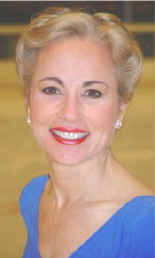 In the latest Shrinkrapradio Dr. Dave interviews Gayle Delaney on her method for interpreting dreams. The method is very reminiscent of Bob Hoss's, in the sense that she also takes the dreamer as a starting point. The dream is taken to be metaphoric in all respects, but the key to understanding the metaphors is not to be found in general archetypal truths, but rather in the dreamer's deduction of its meaning.
In the latest Shrinkrapradio Dr. Dave interviews Gayle Delaney on her method for interpreting dreams. The method is very reminiscent of Bob Hoss's, in the sense that she also takes the dreamer as a starting point. The dream is taken to be metaphoric in all respects, but the key to understanding the metaphors is not to be found in general archetypal truths, but rather in the dreamer's deduction of its meaning.In order to stimulate the dreamer to reconstruct these meanings, Delaney uses an interview method in which the occurrences of the dream are mirrored back to the dreamer. He then must explain and describe the images as accurately as possible and then these descriptions are fed back to him by the interviewer. Soon the description is tipped from dream to reality with the construction: 'Now is there something in your life that is like [insert accurate description from dream image].' As of that point the meaning of the dream unfolds itself.
To take the dream as a personal metaphor with a strictly personal key, seems to me, after all these interviews about dreams, rather self explanatory. Still it needs to be pointing out as the school of plastering the generic explanation (cats are sensuality, sea is death and the such) remain to be strong. While we are making the comparison between for instance Hoss and Delaney, my preference goes to her. Also a less intrusive method and also a much more pleasant podcast interview.


